When it comes to volunteering, it's crucial to foster a supportive environment where everyone's voices are heard and respected. However, conflicts or grievances can sometimes arise, and addressing them thoughtfully can make all the difference in maintaining a positive atmosphere. In this article, we'll delve into effective strategies for handling volunteer grievances, ensuring that every volunteer feels valued and understood. So, if you're ready to create a more harmonious volunteer experience, read on for actionable tips and insights!

Formal Greeting and Introduction
Volunteer grievance handling requires sensitivity and clarity. The grievance process aims to address concerns raised by individuals who dedicate their time and effort, often in community service settings. Procedures typically include an initial formal greeting, acknowledging the volunteer's contributions to the organization. Clear identification of the grievance will follow, providing a structured approach to address the issue effectively. For instance, referencing specific incidents or behaviors (dates, names, and events) adds context and depth to the report, ensuring a thorough understanding of the situation. This protocol creates a respectful environment that values volunteer input, ensuring their voices are heard and considered in the resolution process.
Acknowledgment of the Issue Raised
An acknowledgment of a volunteer grievance highlights the importance of addressing concerns for a positive community involvement experience. This process often involves recognizing the specific issue submitted, such as misunderstandings during community events or lack of resources during service projects. A formal acknowledgment usually occurs within 48 hours, ensuring volunteers in organizations like Habitat for Humanity or local food banks feel heard and valued. The communication could include details such as the grievance date, volunteer name, and a commitment to investigate the matter thoroughly, demonstrating the organization's commitment to resolving conflicts respectfully and efficiently.
Empathetic Recognition and Understanding
Volunteer grievances require a thoughtful approach, acknowledging the emotional investment volunteers have in their roles. Empathetic recognition emphasizes understanding concerns, such as feelings of being undervalued or encountering obstacles, which can lead to frustration. Acknowledging specific events, like a recent fundraising campaign or community outreach program, can highlight areas where volunteers may feel unsupported or overwhelmed. Furthermore, addressing the need for better communication channels or feedback mechanisms demonstrates a commitment to improving the volunteer experience. Creating an environment where volunteers feel heard and appreciated fosters a stronger bond between volunteers and organizations, ultimately enhancing overall effectiveness and morale.
Explanation of the Resolution Process
The volunteer grievance handling resolution process is designed to address concerns raised by volunteers in a fair and transparent manner. Upon receiving a grievance, volunteers are encouraged to submit their concerns to the designated grievance officer within 14 days of the incident. The officer, often trained in conflict resolution, will acknowledge receipt of the grievance within three business days. An initial assessment will be conducted to determine the complexity and validity of the issue, followed by a formal investigation if necessary. The investigation typically occurs within 30 days, involving interviews and evidence gathering, ensuring confidentiality throughout the process. A written resolution will be provided to the volunteer, outlining the findings and any recommended actions. If the volunteer is dissatisfied with the outcome, they have the right to appeal the decision to a higher authority within the organization, which will review the case independently. This process aims to maintain a supportive environment for all volunteers and ensure their concerns are addressed effectively, enhancing overall morale and engagement within the organization.
Contact Information for Further Assistance
Volunteers encountering grievances can seek further assistance through designated channels. For specific inquiries, the Volunteer Coordinator can be reached at the organization's main office phone number, (123) 456-7890, or via email at coordinator@example.org. In addition, a dedicated grievance hotline, available at (987) 654-3210, operates on weekdays from 9 AM to 5 PM, offering anonymous support. Volunteers may also access online resources at the organization's official website, www.example.org/grievances, where you can find detailed guidelines on the grievance process and submission forms. Local community centers can provide in-person support, including mediation services, if required.

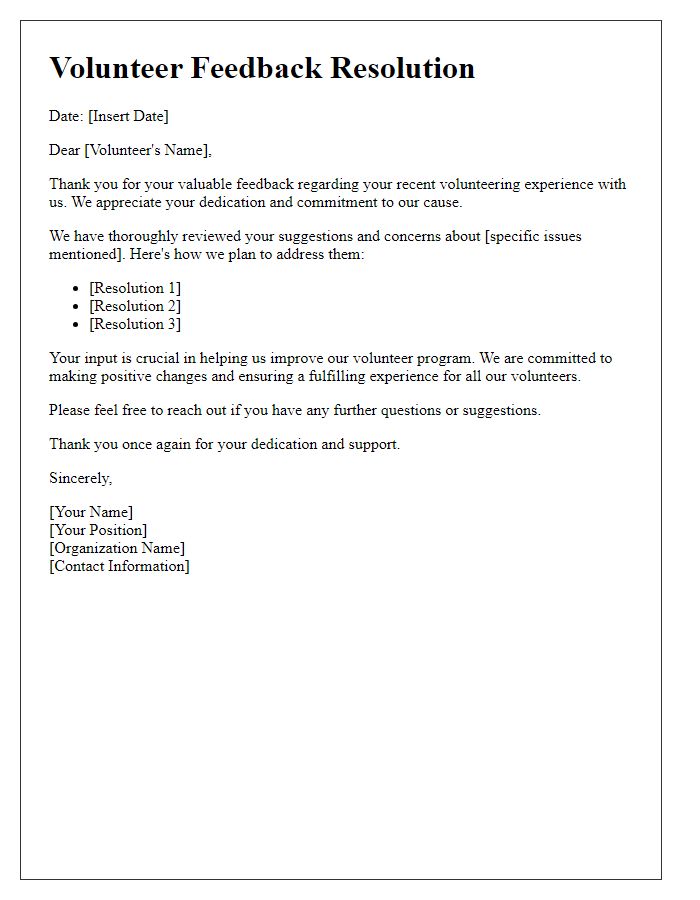
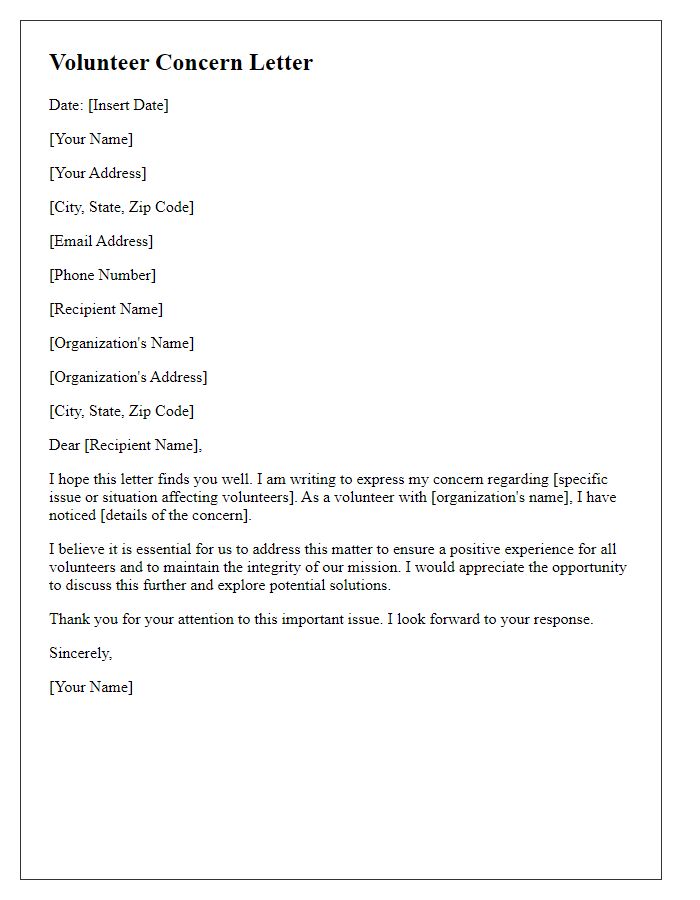
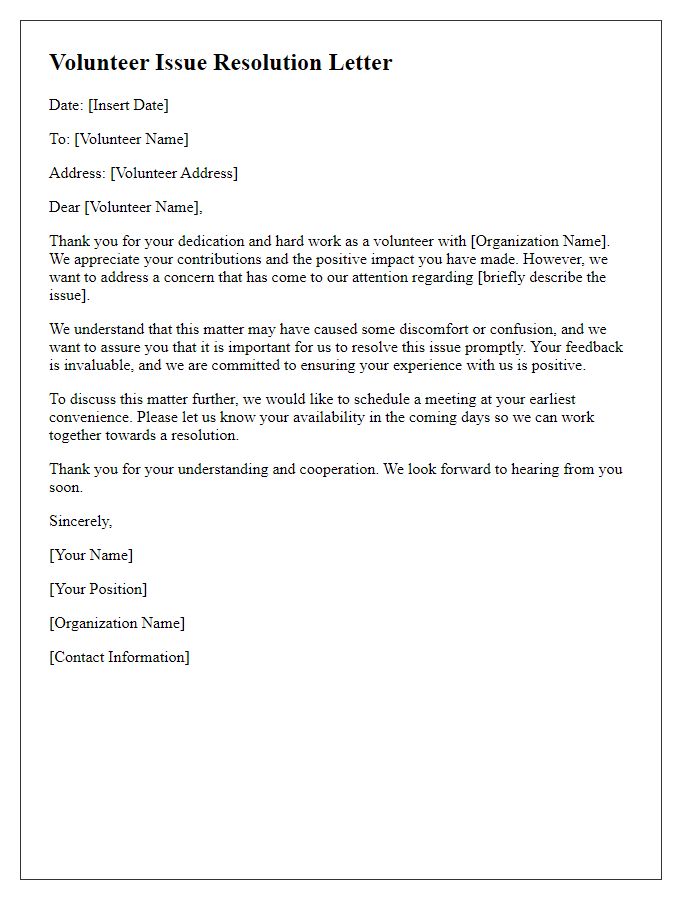
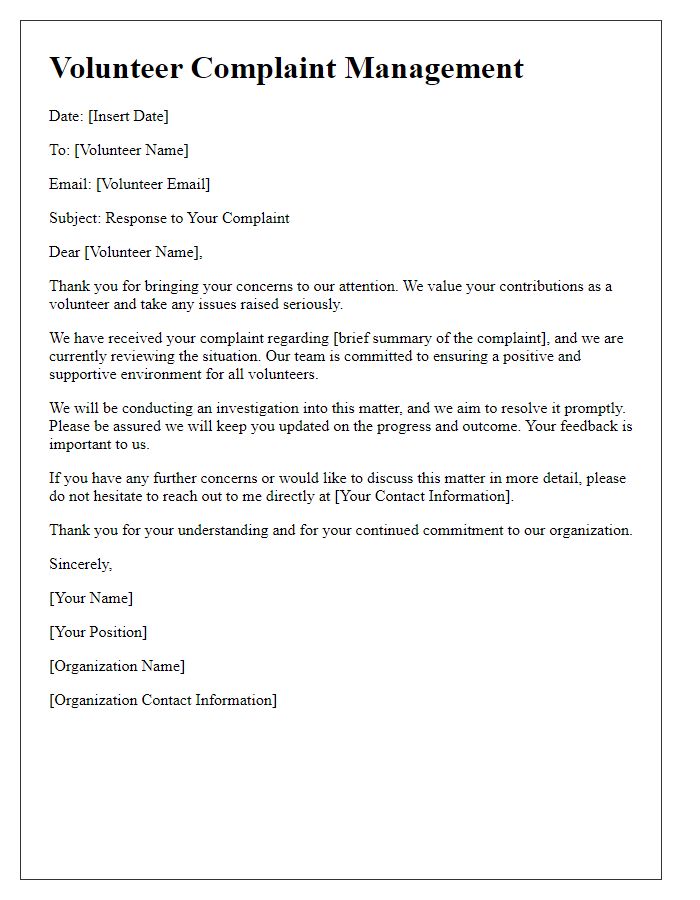
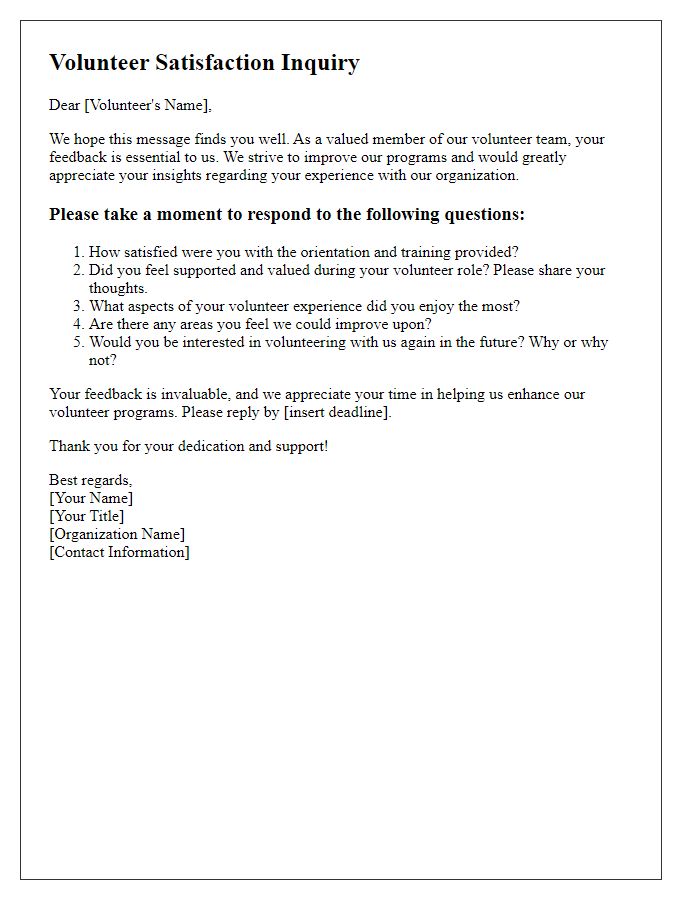
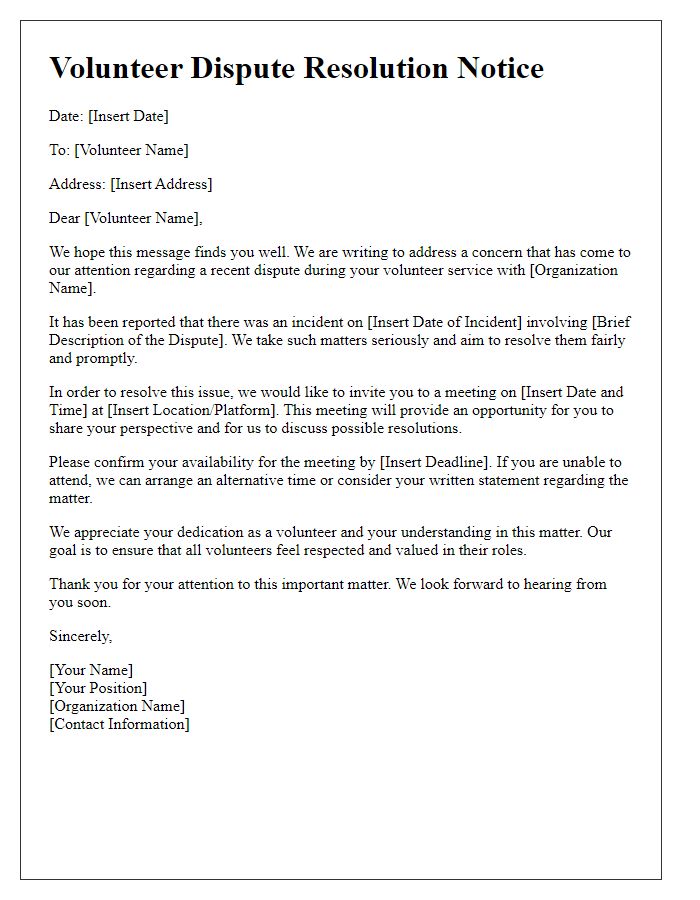
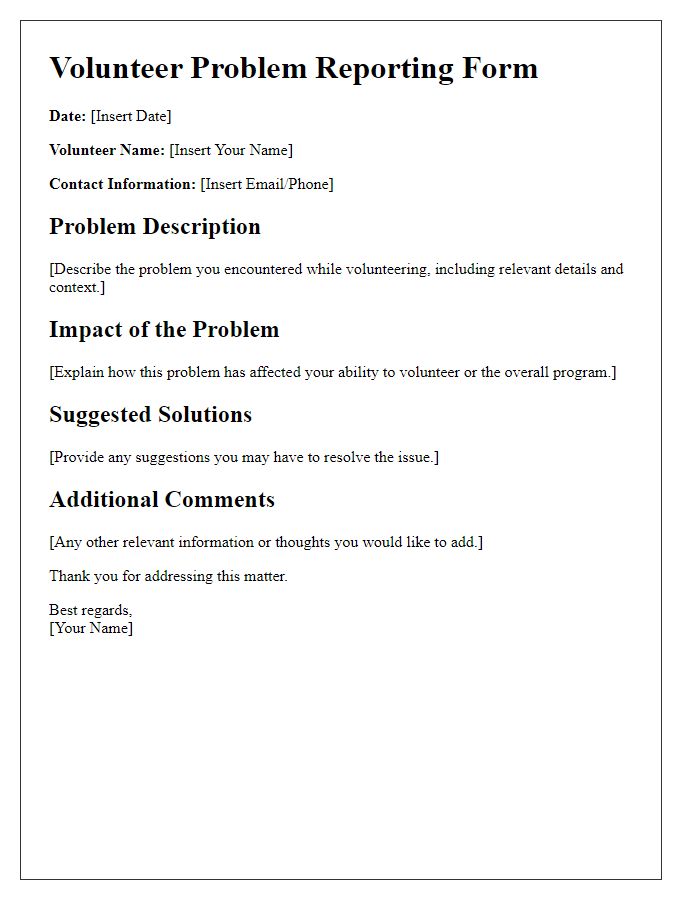
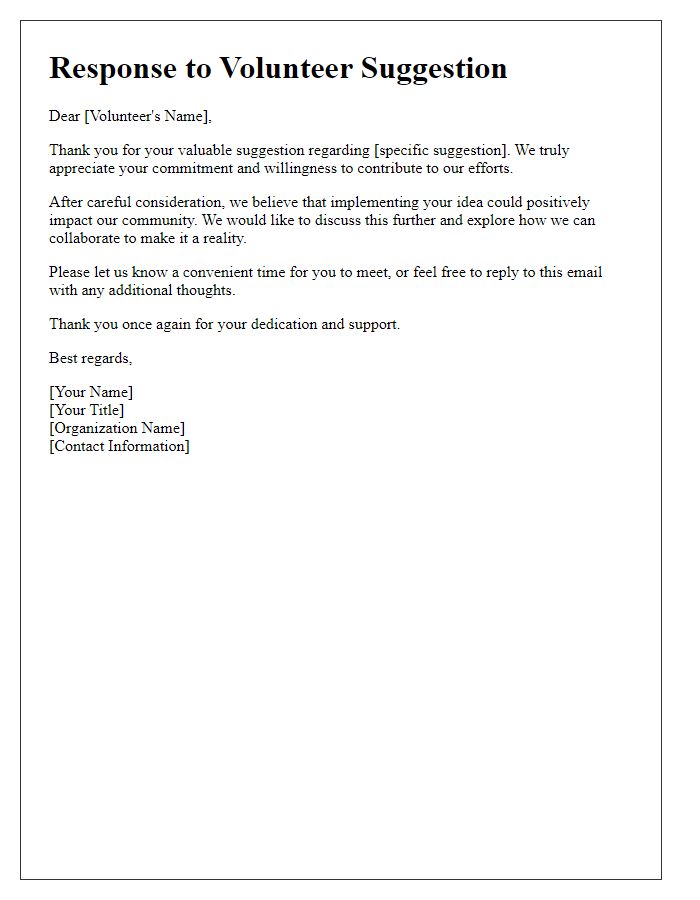
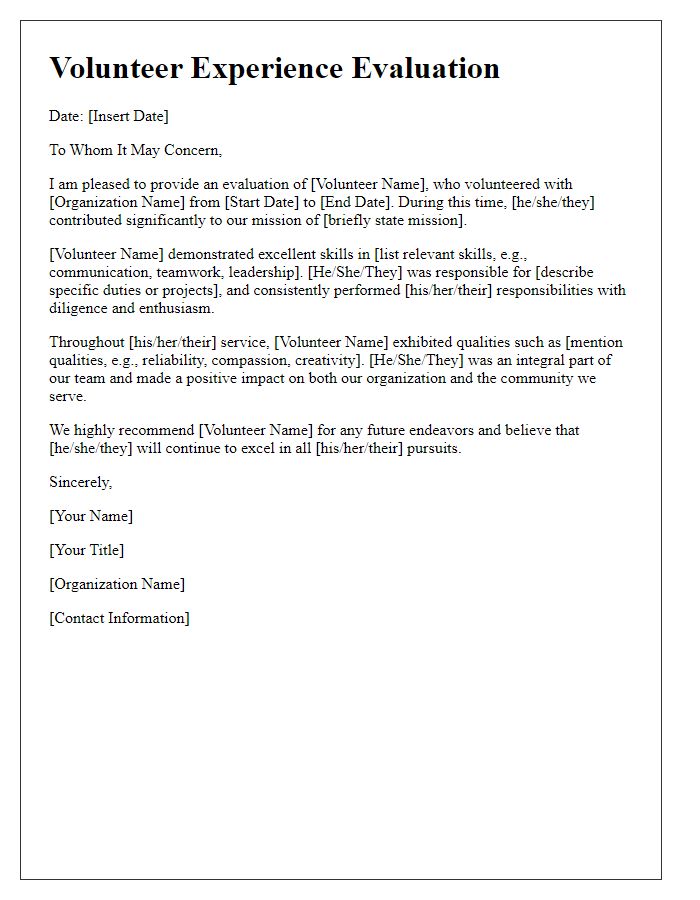
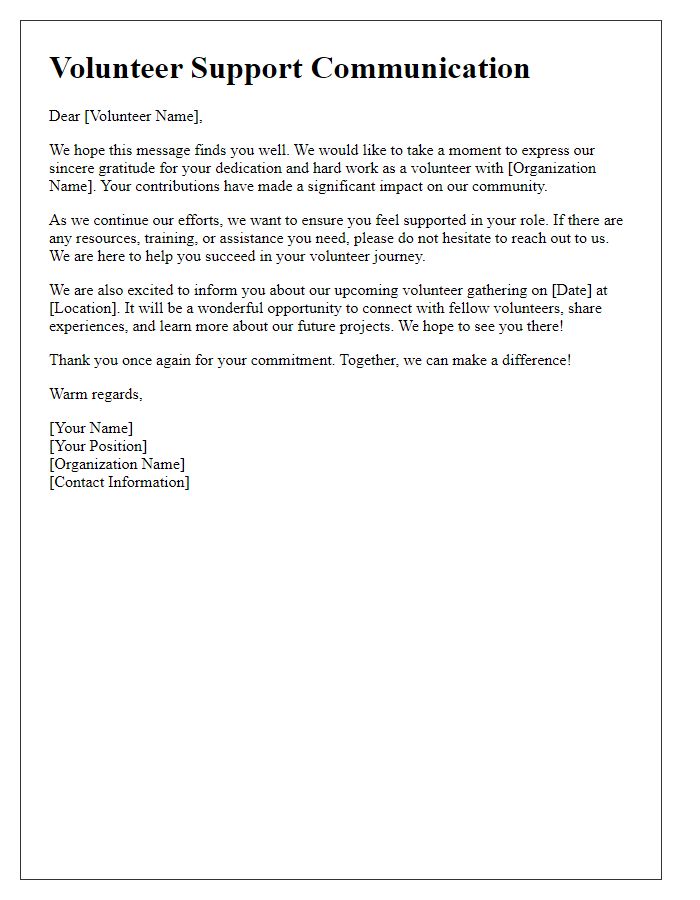


Comments